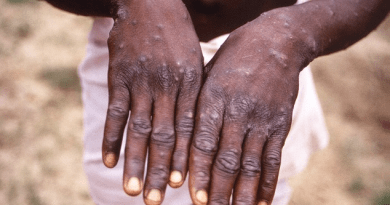Chronic kidney disease: Africa’s silent killer by Viraj Rajadhyaksha
There is a quiet murderer among us. It is a leading cause of death worldwide, affecting 850 million people. Despite its lethal character and expanding frequency, Chronic Kidney Disease goes much too frequently undiagnosed and untreated, and there aren’t enough public health regulations in place to stop its quick expansion across Africa.
On March 9, International Kidney Day offers a chance to raise awareness of this silent killer and bolster efforts to combat chronic kidney disease (CKD). In high-risk populations like those with diabetes, the prevalence is predicted to be 30%, with 15% of the population in Africa having the illness. 3 This is much greater than the average for the world and poses a serious problem for the area. It is probably not unexpected that considerable gaps in the care provided to those with CKD were found when a panel of renal health experts from throughout Africa and the Middle East met last year. They argue for renewed action to stop the spread of the disease in a study that will be published later this month, emphasizing the importance of early invention.
Although there is no known cure for CKD, patients must undergo invasive procedures like dialysis and organ transplants that are extremely expensive, placing a heavy financial load on healthcare systems. The epidemic has only made this problem worse because CKD is one of the most common risk factors for developing severe COVID-19. To put a stop to the neglect, governments, Organizations, healthcare professionals, and the commercial sector must collaborate, with an emphasis on education, prevention, and early identification.
Initially, the underlying causes of CKD can be managed, identified, and treated in order to prevent the disease from ever manifesting. It should come as no surprise that the main causes of CKD—obesity, diabetes, and high blood pressure—have also increased in incidence across Africa over the past few decades. 5 Increasing assistance with integrated care strategies for people with these illnesses will not only enhance overall health outcomes but also aid to prevent cases of CKD and assist nations in developing more durable health systems. After all, avoidance is always preferable to cure.
Second, patients with CKD who have already established the condition can continue to enjoy long, healthy lives thanks to early identification of the condition. Policymakers should prioritize routine CKD screening among high-risk groups in order to achieve this, which is made possible by the quick and affordable diagnostics that are available to detect it. This is now easier than ever because to medical technology advancements made in the last ten years, including the use of biomarkers, sophisticated imaging, and artificial intelligence, yet Africa still lacks access to these breakthroughs.
AstraZeneca is collaborating with governments and healthcare organizations in the area to strengthen capacities and capabilities for early diagnosis, including the creation of the SEARCH initiative to promote early detection in individuals who are at risk. Aiming primarily at patients with pre-existing diseases like diabetes, high blood pressure, or cardiovascular disease, all of which increase the chance of developing CKD, SEARCH has made it possible to test roughly 500,000 people for CKD to date.
Last but not least, education is crucial to equipping patients and healthcare professionals with the information, abilities, and confidence they need to live with and manage this illness. In order to improve their prognosis, patients should be able to understand their risks based on current conditions, how to detect CKD early, and the treatment choices available to them. Peer support can also bolster confidence in regards to making healthy lifestyle choices, getting exercise, and sticking with a treatment plan. A conversation can be started using even the most basic of tools, such as the ISN “Are your kidneys healthy?” quiz (https://apo-opa.info/3F9w6E6), which might be enough to save a life.
The opportunity to raise awareness of CKD on World Kidney Day will assist to halt this silent killer. We can fight to reduce the terrible toll that this disease has on our families and communities via prevention, early detection, and education. We can also work to build healthier, more sustainable health systems in our area and around the world.




